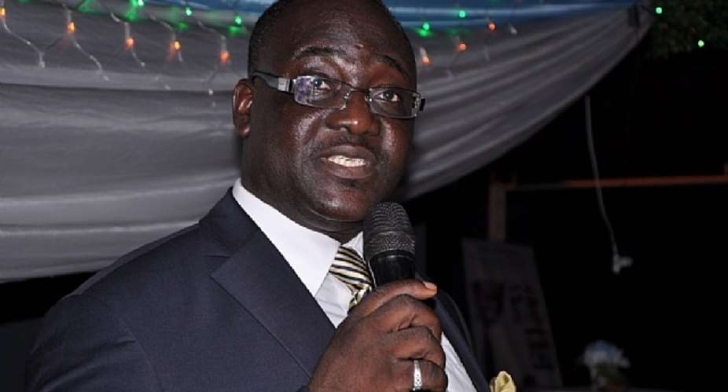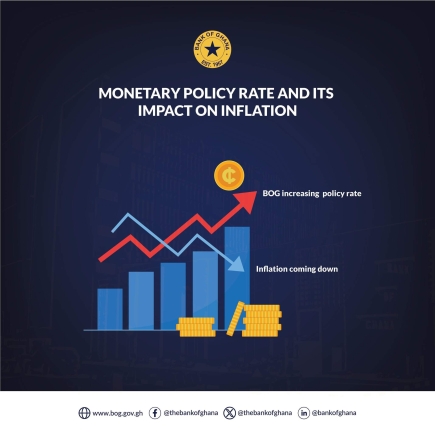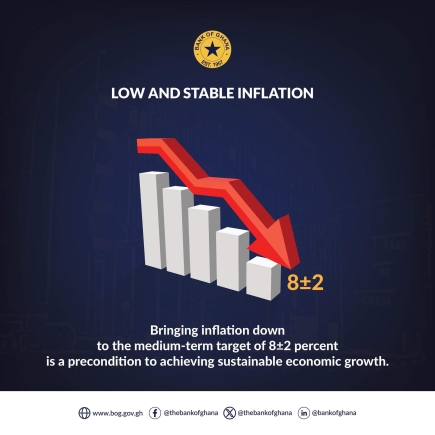
BoG committed to pursuing sound monetary policies - Dir. of Communication
The Bank of Ghana is committed to pursuing sound monetary policies aimed at achieving a stable level of inflation in line with its medium-term target, Director of Communications, Bernard Otabil has said.
He said bringing inflation down to the target level was a precondition to achieving sustainable economic growth and over the long term, ensuring economic prosperity in the country.
Mr Otabil said a stable and lower inflation would also help promote exchange rate stability under a floating currency regime.
Speaking to the media to respond to comments that the Monetary Policy Committee (MPC) was deliberately keeping the policy rate high for the cental bank to make more profits, he said anyone who makes such claims does not understand central banking fully because high interest rate was rather inimical to the operations of central banks.
He said high interest rates rather increases the cost of the BoG’s open market operations and leads to large losses.
“But that’s the price central banks pay to achieve stable prices, Central banks are not commercial banks and do not seek profits, nor do they face the same financial constraints as private institutions.
“Central banks by nature of their work are supposed to provide a public good and that public good is low and stable inflation which comes at a cost,” he said.
The Director of Communications also added that central banks could make losses, get into negative accounting equity and still function effectively, stating that “a loss does not imply loss of policy effectiveness.”
He said the central bank would therefore not trade the objective of achieving low and stable prices with profits.

Inflation
Ghana’s economy has been grappling with high inflation, with the rate reaching a 22-year high and a peak of 54.1% in December 2022.
In response to the rising inflation, the Monetary Policy Committee of the Bank of Ghana kept a tight monetary policy stance by consistently increasing the policy rate to 30% by the end of 2023.
With inflation easing in 2023, reducing to 23.2% in December 2023, the central bank, for the first time in two years, reduced the policy rate to 29% in January 2024 and has since maintained the rate at 29%.

MPC debate
Going into its third Monetary Policy Committee meeting for the year, the BoG has come under some pressure from the business community to further reduce the policy rate to allow businesses access finance at cheaper rates.
With 2024 also being an election year, some have also predicted that the central bank would relax the policy rate in the coming months to help support economic growth.
However, the International Monetary Fund (IMF) has cautioned central banks who still have inflation higher than their target bands to maintain a tight monetary policy.
Ghana’s current inflation rate of 25% is two times higher than the central banks’ target band of 6%-10%.
The IMF said although inflation in such countries may have been on a consistent decline in recent months, it was still too early to relax their monetary policy rates.
It said such countries may pause on increasing the policy rate, but added that it would be too early to reduce them.
 Click the link to read your copy.
Click the link to read your copy.